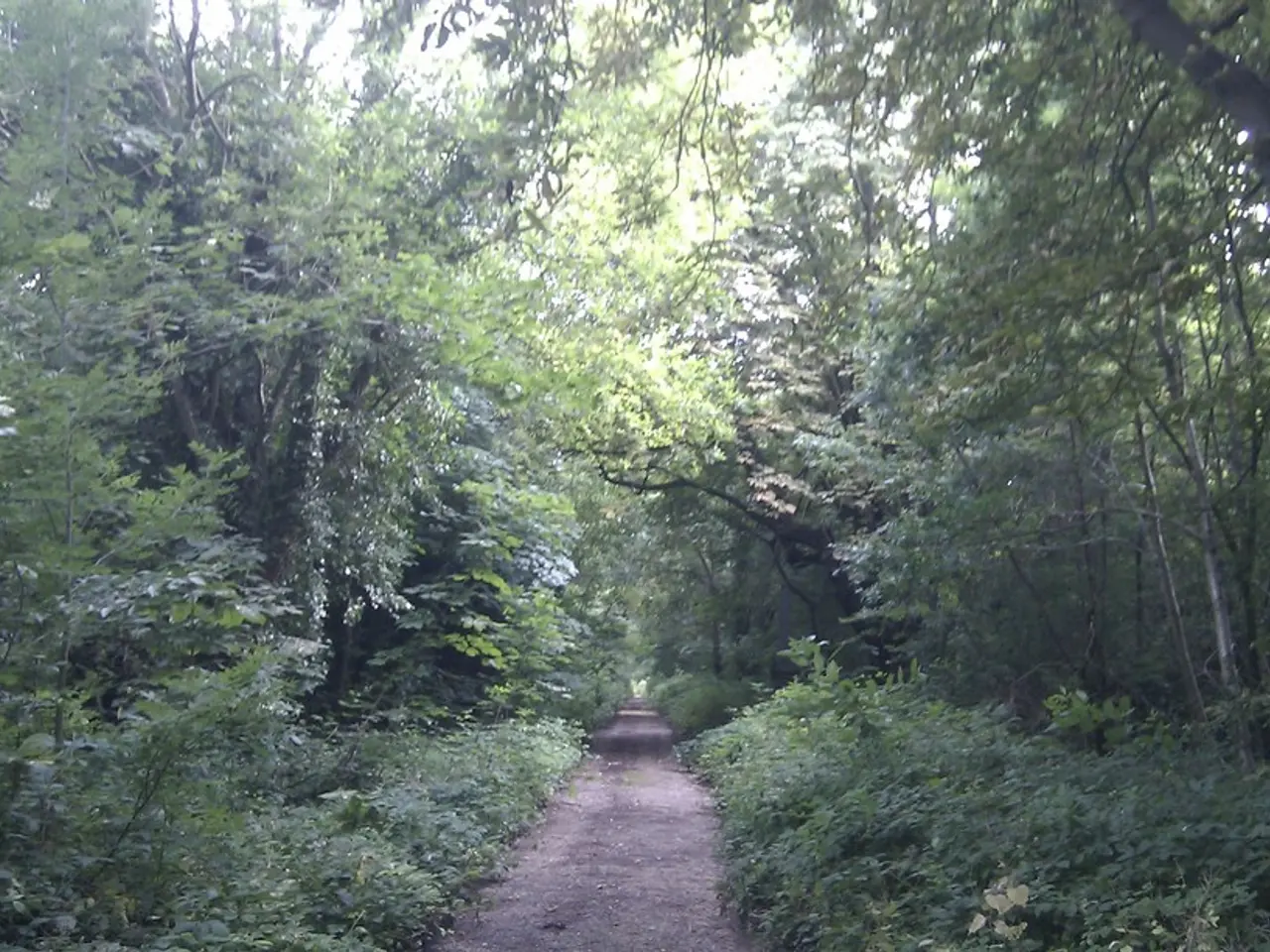Unnecessary Road Construction in April?
Dehradun, the capital city of Uttarakhand, is facing a critical environmental crisis. The current issues revolve around unchecked construction and human interference in ecologically sensitive zones, leading to increased vulnerability to natural disasters like flash floods.
In the Bhagirathi Eco-Sensitive Zone (BESZ), unregulated construction, tourism, and the felling of thousands of trees (over 6,000 deodars) have severely impacted the fragile Himalayan ecosystem. This unchecked development has worsened floods, accelerated land degradation, and increased disaster risks due to disrupted drainage, increased carbon emissions, and altered microclimates.
Recent heavy rainfalls and intense weather events, with official alerts like orange warnings, have heightened the risk of landslides and flash floods in the district, leading to school closures and emergency preparedness measures. Studies confirm a rising trend of flash floods and related extreme weather events in Uttarakhand, attributed to climate change, rising temperatures, and the geological fragility of the region.
Research using geospatial assessment highlights the significant human footprint and pressure on ecosystem services in Dehradun, underlining the need for better management of anthropogenic impacts. The situation regarding environmental issues is dire, and the destruction does not stop.
Environmental organizations, civil society groups, and concerned citizens regularly gather in Dehradun to address these challenges. However, the people do not have the resources to travel the world to raise awareness about their problems. The argument between preserving nature and promoting development is common, with some advocating for speeches during protests while others consider it preaching to the converted.
The forests in Dehradun are vanishing, and the planet has reached a tipping point. The cost of development is too high, and many people in India, regardless of their wealth or social status, are entitled and do not care about the environment. Innumerable highways for tourists are not beneficial when forests and mountains are destroyed.
The planet is responding to human actions, often to our detriment, and several other species are affected. Last summer, temperatures in Dehradun reached almost 50 degrees Celsius in two heatwaves. Storms have become tepid and embarrassing, and rainfall amounts are pathetically small. The poem "Say not the struggle naught availeth" by Arthur Hughes Clough has been a source of solace during difficult times.
T.S. Eliot's poem "April is the cruellest month" is referenced as the planet continues to struggle with the consequences of human actions. Construction has increased pollution levels and disease across India, and the ruling classes remain selfish, with many people below them complacent as long as they receive comforts.
As disagreements over how to save the forests continue, it is clear that urgent action is needed to protect Dehradun's ecosystems and combat climate change. The upcoming month is expected to bring dust, heat, and more unnecessary roads, but it is crucial that we prioritise the health of our planet and future generations over short-term gains.
- The increasing danger of natural disasters like flash floods in Dehradun is partially due to the impact of unregulated development upon the environmental-science of the region, as illustrated by the deforestation in the Bhagirathi Eco-Sensitive Zone.
- In an effort to combat climate-change and save Dehradun's fragile ecosystems, environmental-science organizations, civil society groups, and concerned citizens regularly gather for discussions, aiming to implement sustainable-living practices in both lifestyle and home-and-garden surroundings.
- A significant proportion of the environmental issues faced by Dehradun are a direct result of the disregard for the environment by many people, thereby increasing the need for education-and-self-development programs focusing on personal-growth and the importance of preserving the planet.
- As the planet continues to reel under the consequences of human actions, with Dehradun suffering from soaring temperatures and reduced rainfall due to climate-change, the poem "Say not the struggle naught availeth" serves as a beacon of hope amidst the ongoing environmental crisis.




